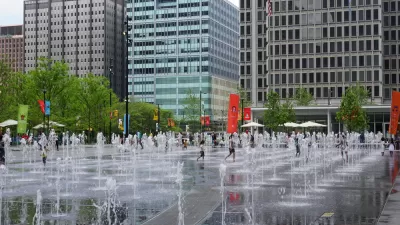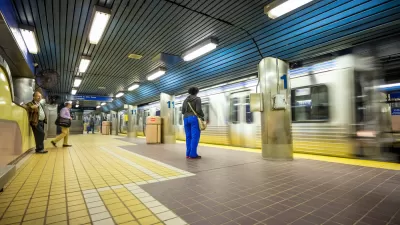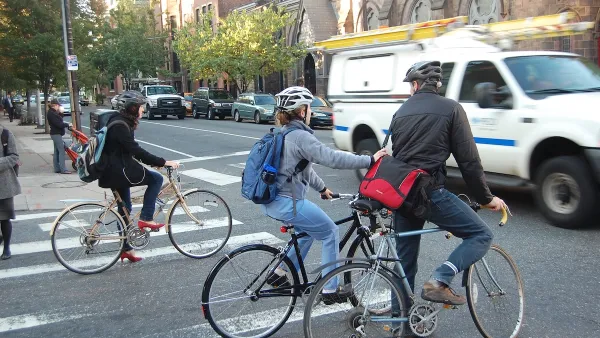The Rebuild initiative in Philadelphia depends on funding generated by a 1.5 cents-an-ounce tax on sugary beverages. The tax is in effect, but $300 million in bonds have to wait for a court decision about the tax.

Malcolm Burnley reports on the ongoing legal fight over a 1.5 cents-an-ounce tax on sugary beverages in the city of Philadelphia. The case is under consideration at the Pennsylvania Supreme Court. Meanwhile a $500 million capital investment program—known as the Rebuilding Community Infrastructure (Rebuild) initiative—for the city's public parks, rec centers, playgrounds, and libraries hangs in the balance.
"For more than a year, Rebuild has hung in suspended animation on account of a lawsuit backed by the beverage industry that’s challenging the constitutionality of the tax in court," writes Burnley. "City Hall has refused to issue the anticipated $300 million in bonds for Rebuild until (and if) the court upholds the constitutionality of the citywide levy, the financial lynchpin of the ambitious effort to better public spaces in neighborhoods that haven’t experienced much public investment in decades."
There are other causes for concern with the tax, according to Burnley. First among them is the failure o the tax to hit revenue targets in 2017. Lower than expected revenue is likely to affect the size of capital investments in the future. The article includes more details about the politics surrounding the soda tax and what the controversies mean for the city's investments in its public resources.
FULL STORY: City: 'Too soon' to say if soda tax shortfall will hit parks & rec makeover

Maui's Vacation Rental Debate Turns Ugly
Verbal attacks, misinformation campaigns and fistfights plague a high-stakes debate to convert thousands of vacation rentals into long-term housing.

Planetizen Federal Action Tracker
A weekly monitor of how Trump’s orders and actions are impacting planners and planning in America.

In Urban Planning, AI Prompting Could be the New Design Thinking
Creativity has long been key to great urban design. What if we see AI as our new creative partner?

King County Supportive Housing Program Offers Hope for Unhoused Residents
The county is taking a ‘Housing First’ approach that prioritizes getting people into housing, then offering wraparound supportive services.

Researchers Use AI to Get Clearer Picture of US Housing
Analysts are using artificial intelligence to supercharge their research by allowing them to comb through data faster. Though these AI tools can be error prone, they save time and housing researchers are optimistic about the future.

Making Shared Micromobility More Inclusive
Cities and shared mobility system operators can do more to include people with disabilities in planning and operations, per a new report.
Urban Design for Planners 1: Software Tools
This six-course series explores essential urban design concepts using open source software and equips planners with the tools they need to participate fully in the urban design process.
Planning for Universal Design
Learn the tools for implementing Universal Design in planning regulations.
planning NEXT
Appalachian Highlands Housing Partners
Mpact (founded as Rail~Volution)
City of Camden Redevelopment Agency
City of Astoria
City of Portland
City of Laramie





























